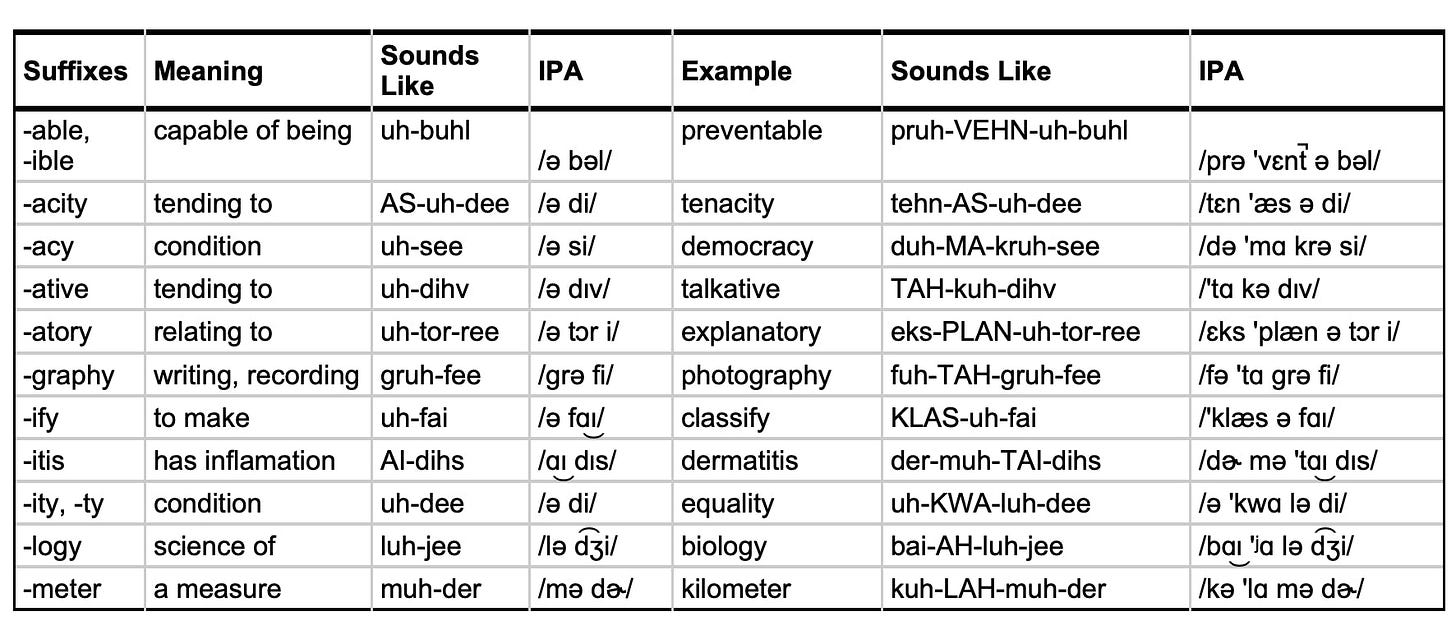Pronunciation of Suffixes with Schwa
Some suffixes have two parts
Some Suffixes Have Two Parts
The most recent thing I've been writing about (for my book) has been pronunciation of prefixes and suffixes.
Prefixes are additions at the beginning of a word such as "un-" in "unbelievable" and "con-" in "context."
Suffixes are parts added to the end of a word. Usually suffixes have one syllable, such as the "-tion" in "animation" and the "-ly" in "friendly."
Some suffixes have two syllables such as the "-able" in "unbelievable" which would be divided as: un-be-liev-a-ble.
Two-syllable words will have one syllable stressed with higher pitch and longer vowel duration and one syllable not stressed with shorter vowel duration and the high probability that the vowel sound will change to the "schwa" sound of "uh" /ə/. This is also what happens when suffixes have two syllables. In addition, the pronunciation of /t/ can change to /d/ when it's between two voiced sounds.
Look for Patterns
It's helpful to be able to identify some common suffixes and how they are pronounced with these changes so you can apply that pronunciation to any word you see them in. Not making these changes isn't wrong, but it's "too correct" and stands out as having different sounds and rhythm.
Here's some examples of two-syllable suffixes that use schwa in the vowels and change /t/ to /d/. I recorded two examples. Listen carefully to hear the difference and hear which one sounds more like the way you pronounce the words.
1) pronunciation with schwa and /d/'s
2) pronunciation without schwa and using /t/'s
I added the meaning of the suffixes in this table because it will help you make a good guess of the meaning of a totally unfamiliar word. You can practice the pronunciation of the suffix on it's own and in a word:
I hope you try pronouncing these words using the "uh" sound for vowels and using /d/ for /t/ when possible. If you don't usually pronounce the suffixes that way, it will take conscious effort at first, just like I had to really concentrate to pronounce the words in the "too correct" way. Keep repeating the words until you can feel the rhythm of that words created by the stretching of the stressed (capitalized letters in the "Sounds Like" column) vowels and the shortening of the unstressed vowels.
Listen for it in other people's speech. Since these go by very quickly, try watching a video in a slower speed to hear them. Search for these words in Youglish.com, slow down the speed to catch the pronunciation. You'll hear the /t/ being dropped from "preventable" right away: https://youglish.com/pronounce/preventable/english/us?v




